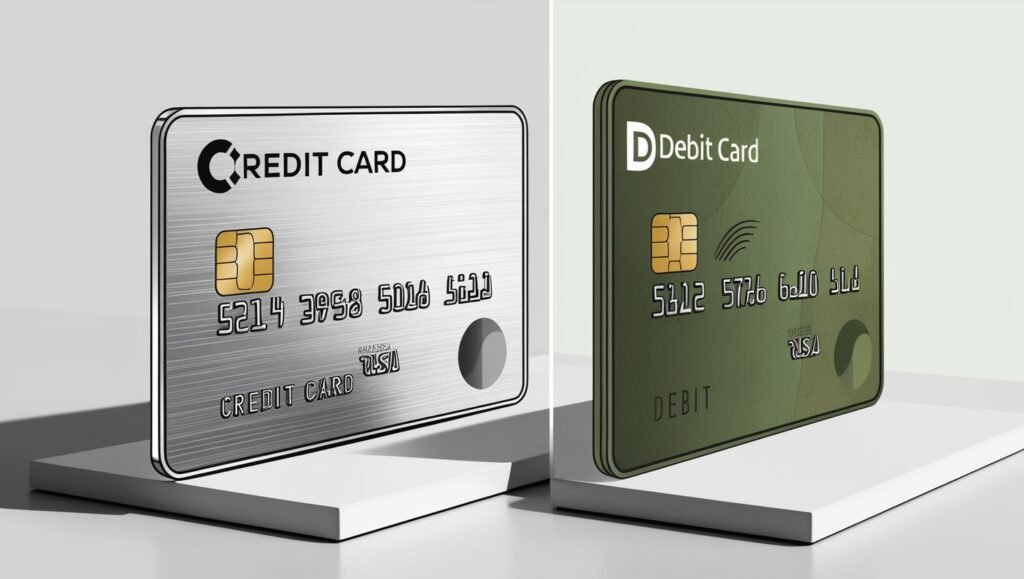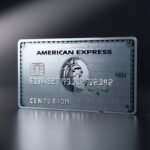Credit Cards vs. Debit Cards: An Overview
Credit cards and debit cards might look nearly identical, featuring 16-digit numbers, expiration dates, magnetic strips, and EMV chips. Both are widely used for making purchases online or in stores, but they work differently. Debit cards draw money directly from your bank account, while credit cards let you borrow money from the card issuer up to a certain limit.
Chances are you carry at least one credit card and one debit card in your wallet. While both offer convenience and security, they have significant differences that can impact your financial well-being. Here’s how to decide which to use for your spending needs.
How Credit Cards and Debit Cards Work
Credit Cards
Credit cards let you borrow funds from the issuer, with a set limit based on your creditworthiness. Purchases can be repaid in full each month or over time, but carrying a balance will incur interest charges based on the card’s annual percentage rate (APR).
Debit Cards
Debit cards withdraw money directly from your checking account when you make a purchase. There’s no borrowing involved, and transactions typically process immediately or within one to two days.
Key Differences Between Credit Cards and Debit Cards
| Feature | Credit Cards | Debit Cards |
|---|---|---|
| Source of Funds | Borrowed from card issuer | Deducted directly from your bank account |
| Interest Charges | Applies if balance isn’t paid in full | No interest charges |
| Credit Score Impact | Affects credit score | Does not impact credit score |
| Fraud Protection | Strong protections; often zero liability | Protections depend on your bank’s policies |
| Spending Limit | Based on credit limit | Limited to your account balance |
| Overdraft Risk | None, as it’s borrowing | Possible if account balance is insufficient |
| Usage in Emergencies | Flexible credit availability | Limited to funds available in the account |
Advantages of Credit Cards
- Build Credit History
Responsible use of a credit card helps you build a strong credit score, which is essential for loans, renting apartments, and even job applications. - Rewards and Perks
Many credit cards offer cashback, travel rewards, and other benefits. Some cards also include extended warranties, purchase protection, and travel insurance. - Fraud Protection
Credit cards often come with robust fraud protection, minimizing liability for unauthorized transactions. - Emergency Fund Access
Credit cards can act as a safety net during emergencies when cash or bank funds are insufficient. - Deferred Payments
Credit cards allow you to buy now and pay later, offering financial flexibility.
Advantages of Debit Cards
- No Debt
Debit cards only use funds from your account, eliminating the risk of debt accumulation. - Budget-Friendly
With spending limited to available funds, it’s easier to stick to a budget. - Widely Accepted
Debit cards are accepted almost everywhere credit cards are, making them a convenient payment method. - No Annual Fees
Most debit cards don’t have annual fees, unlike some premium credit cards. - Instant Transactions
Payments are processed immediately, making it easier to monitor spending.
Examples of When to Use Each Card
- Credit Card Example: Booking a flight with a rewards card can earn points and provide travel insurance.
- Debit Card Example: Paying for groceries ensures you’re using money you already have.
Potential Downsides
Credit Cards
- High-Interest Rates: Carrying a balance can lead to costly interest charges.
- Debt Risk: Overspending can result in financial trouble.
- Fees: Late payments, annual fees, and foreign transaction fees can add up.
Debit Cards
- Limited Fraud Protection: Protections vary by bank and may not match credit card coverage.
- No Credit Building: Debit card use doesn’t contribute to your credit score.
- Overdraft Fees: Spending beyond your balance can incur significant fees.
- Lack of Rewards: Few debit cards offer cashback or other perks.
Choosing the Right Card for Your Needs
When to Use a Credit Card:
- You want to earn rewards or cashback.
- You’re building or improving your credit score.
- You need extra protections for online or large purchases.
- You’re planning a big purchase and need deferred payment options.
When to Use a Debit Card:
- You’re managing a strict budget and want to avoid debt.
- You prefer using funds you already have.
- You need straightforward transactions with no interest or fees.
- You’re making everyday purchases where rewards are unnecessary.
Final Thoughts
Both credit and debit cards offer unique benefits and serve different financial purposes. The best choice depends on your spending habits, financial goals, and needs. Many people use both types strategically—debit cards for everyday expenses and credit cards for rewards, credit building, or emergencies.
If you want to know the basics of credit cards, we have got you cover. Read our article about credit cards For more financial tips and insights, visit The Finance Bot to stay informed and empowered on your financial journey.




Pingback: 10 Reasons to Use a Credit Card Over Debit or Cash - The Finance Bot